Scattered throughout the state of Oklahoma, in long forgotten rivers and lakes, massive catfish lurk beneath the surface. In addition to being genetic exceptions, most of these fish have one thing in common: they’ve met a man named Austin Brown.
Some were reluctant to accept the invitation, waiting until the middle of the night to taste the freshly prepared meal he left for them, and then fighting the whole way to his riverbank doorstep. Others came somewhat more willingly, running toward him before a last second panic and sudden thrashing.
Regardless, each enjoyed a fuller belly and an adventure with a good ending as they were released back into their home to further contribute to the gene pool and live out the end of their lives.
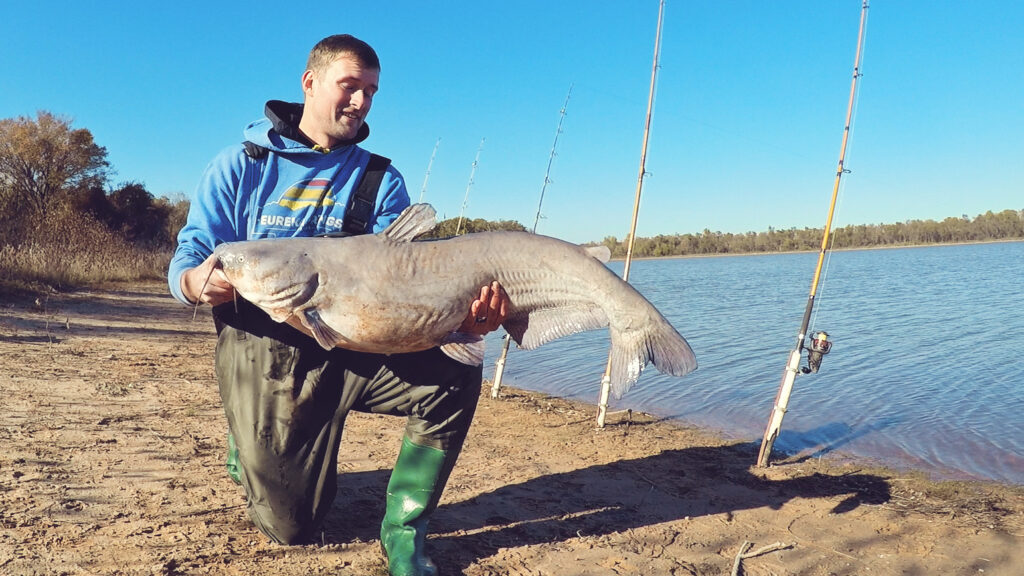
Austin remembers them though—and the things that make them unique. Far more than just a hobby fisherman, he has been on a journey he calls “Chasing Moby Dick” which he documents on his YouTube channel with videos that bring viewers right into the action. In addition, he shares supplementary content on Facebook, Instagram, and Tik Tok.
While he didn’t grow up fishing, Austin was invited as an 18-year-old out fishing with some friends and caught some bullhead catfish. He later learned there were different types of catfish and that they could grow to be quite large–and he was hooked.
Today, he maintains a fairly basic approach to his craft, using a Carolina rig and fishing from the bank, kayak, canoe, or occasionally a boat. His main focus is the bait–and he is stringent about it. He refuses to fish with frozen bait and only uses bait fish that are native to that particular body of water. This ranges from Bluegill to Crappie, Shad, and Carp. He also doesn’t buy bait, but instead catches everything himself. Since he won’t freeze it, if he catches it in advance, he will keep it alive until he is ready to use it. This technique has led to him having to learn not only about the behaviors and likes of catfish, but also about the intricacies of baitfish and the broader ecosystems of the lakes and rivers. The better he understands them, the easier they are to find.
When it comes to getting the bait to the monsters themselves, sometimes Austin and his buddies will use the kayak to paddle bait out further than one could cast. Austin’s wife Lauren, dog Lily, and buddies frequently accompany him fishing, and their crew braves freezing temperatures and long nights in pursuit of being a part of the elusive and nocturnal catfish world.
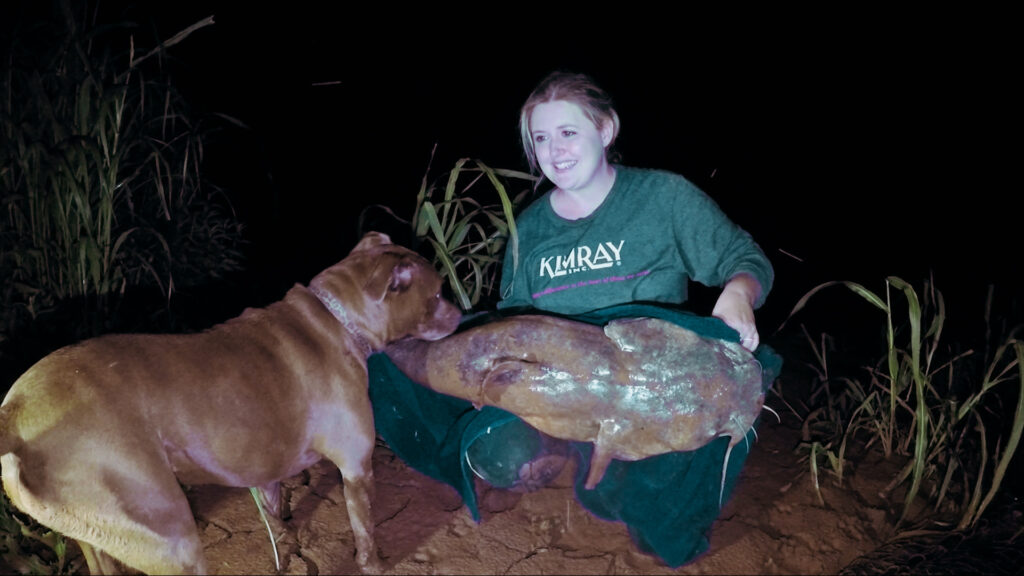
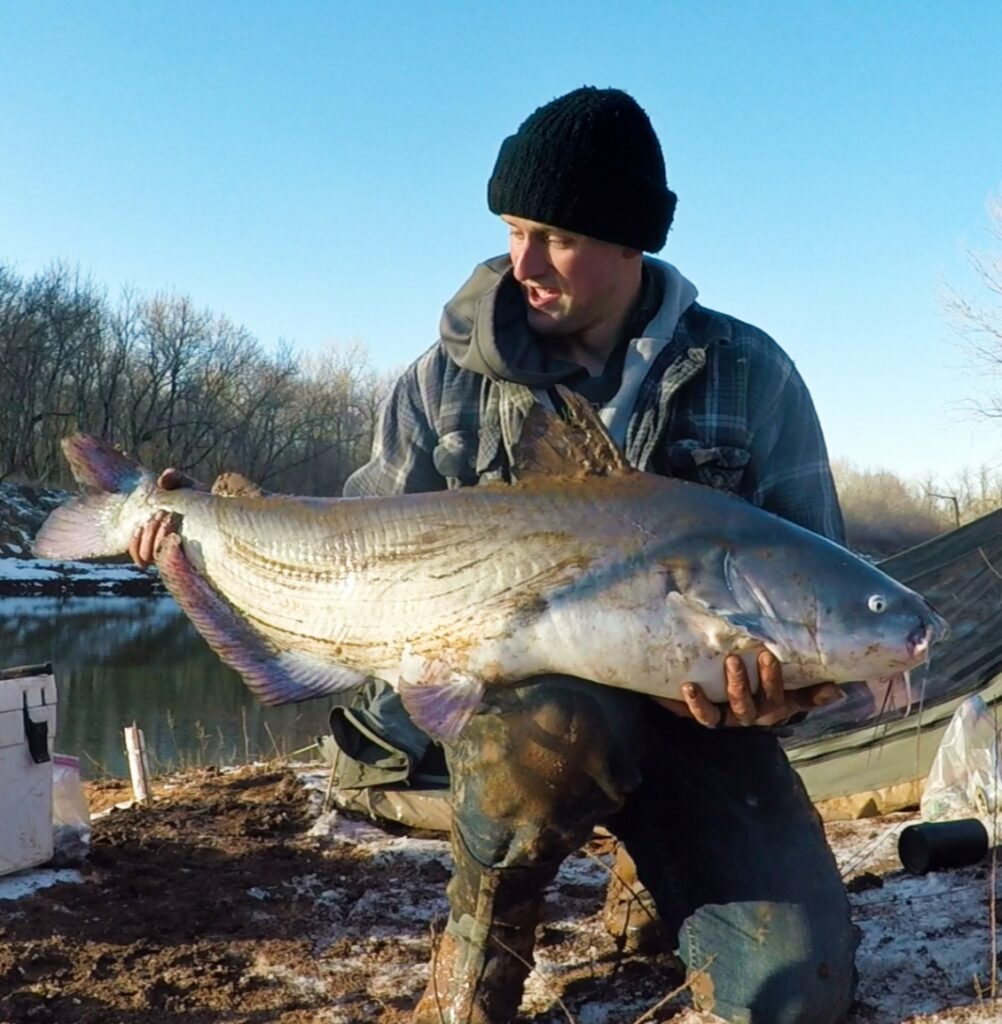
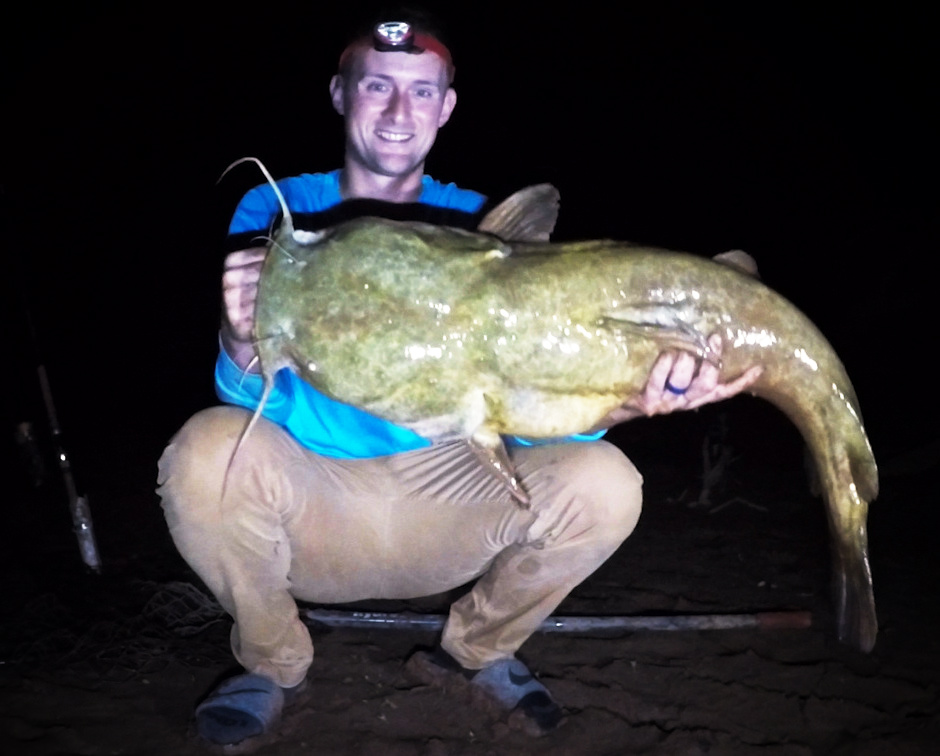
Through these adventures, he has learned that the water truly affects the fish and their development. He sees that each fish tells a story about its life, habits, and habitats. Recently, he caught some blue catfish that were practically white in appearance, due to living in deep muddy waters with little exposure to sunlight. He has also noticed that river catfish often have longer, more muscular bodies in comparison to their lake dwelling counterparts who don’t have to fight currents and enjoy a shorter and chubbier frame.
In fact, most of these monsters Austin catches have developed their size over a period of years and are now in the age range of 10-25 years old. Out of respect to their hardiness and uniqueness, he releases every one of them back into their wet home, referencing the importance of their unique genes being passed on to posterity. His efforts reflect his larger interest in conservation and appreciation for all the wild has to offer.
His long-term goal is to set a new state record for the largest catfish caught. The current state records in Oklahoma are 98 pounds for a blue catfish and 78 pounds for a flathead catfish. Neighboring Texas brags of a record of a 121-pound blue catfish from Lake Texoma. Most of the fish he is currently reeling in weigh between 30-50 pounds and are blue catfish, although the occasional striper or drum has found its way into the mix, particularly during outings on Lake Texoma. However, like a true sportsman, Austin speaks of the love of each moment; the sightings of bald eagles and the feeling of being lost in nature, away from all the people and noise.
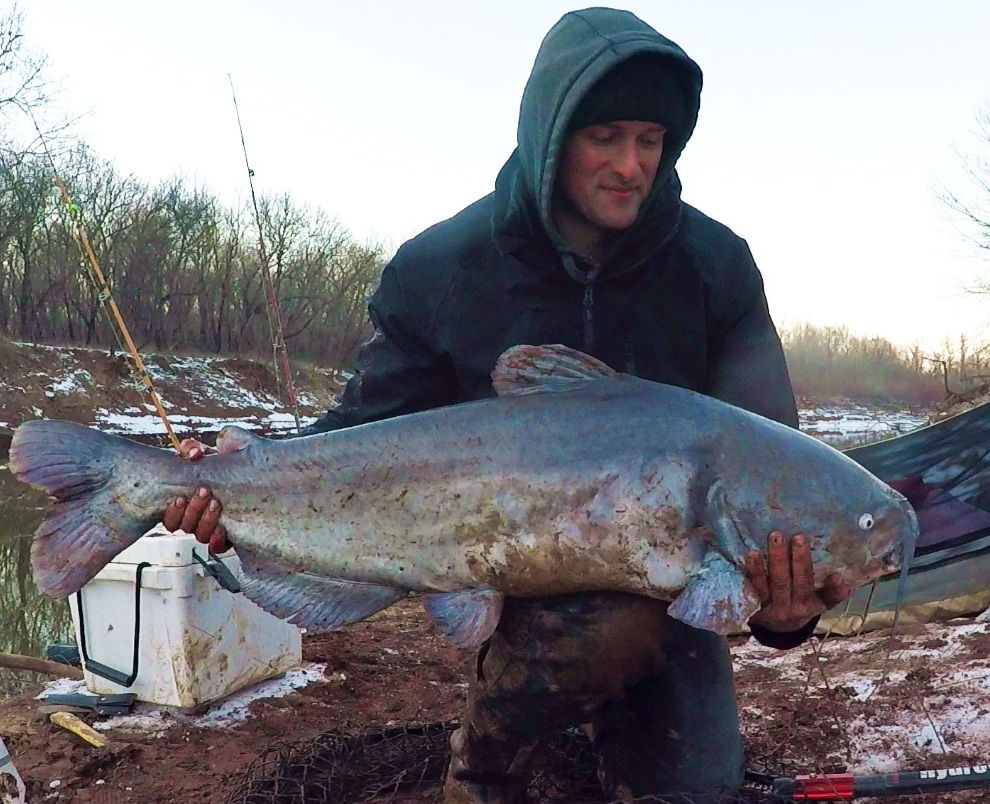
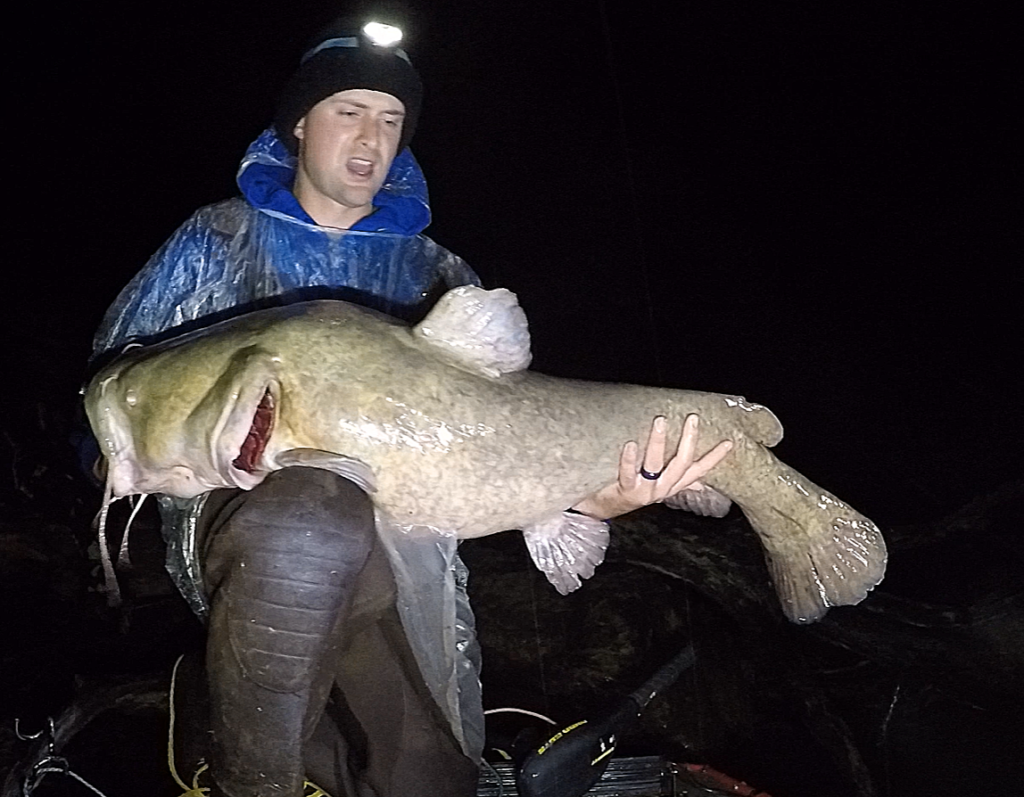
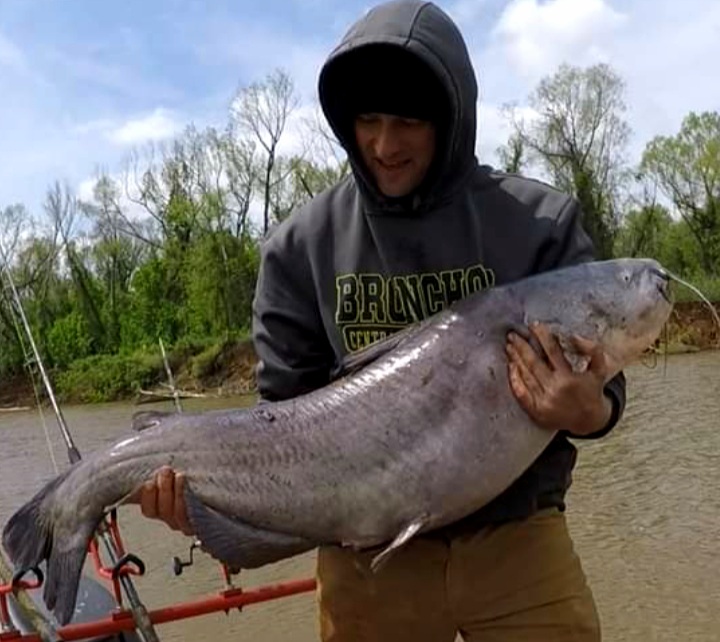
From camping trips with poles out all night and bells on their tips ringing in alarm at a bite, Austin has made a lifestyle out of his respect for these fish and is surely going to be a part of catfish culture for years to come.

Connect with Austin:
Youtube.com/@chasingmobydick
Instagram @chasingmobydick
Facebook group Chasing Moby Dick
Tik Tok @chasingmobydick

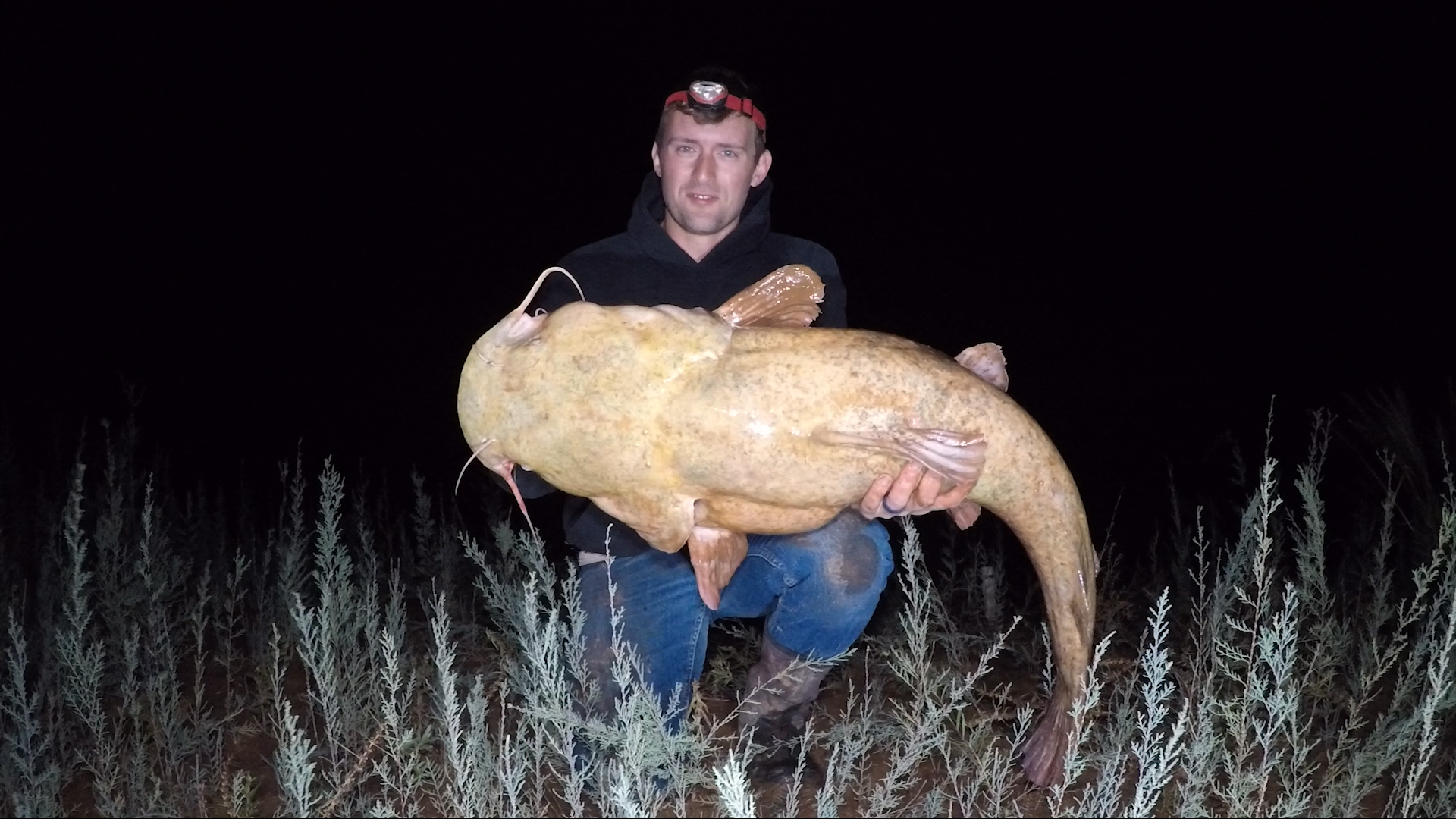
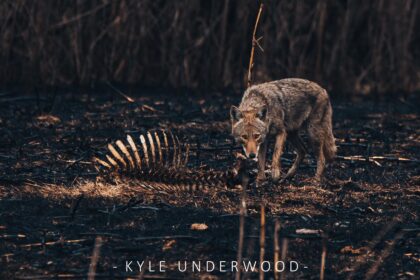

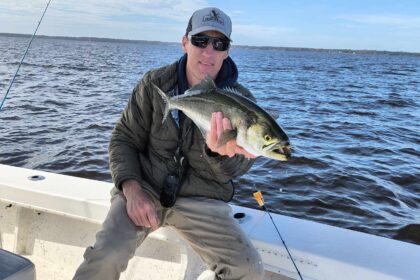
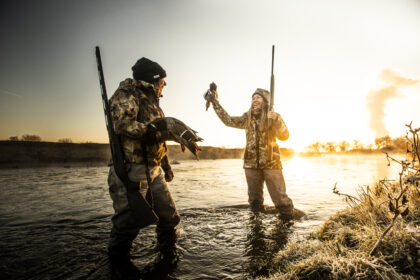

You’re the man! The big fish have your name and number!
Very well written! You have a gift for storytelling!
thank you for the kind words!